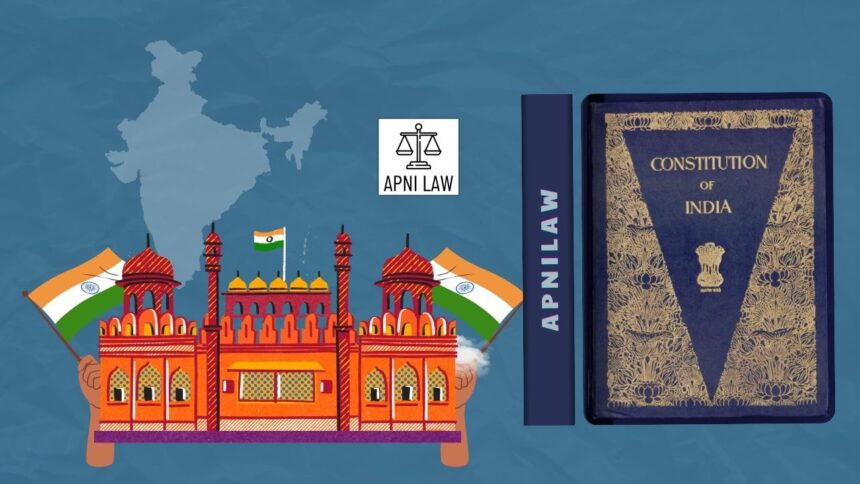The Punchhi Commission (2007–2010) was established to review and update Centre, State relations in India. It came nearly two decades after the Sarkaria Commission, which had addressed similar issues in the 1980s. The Punchhi Commission examined how changing social, political, and economic realities had created new challenges for Indian federalism. Its report contained 273 recommendations, aimed at strengthening cooperative federalism, empowering states, and protecting their autonomy while maintaining national unity.
The report became a vital document in India’s constitutional and political discourse. It suggested reforms for emergency provisions, internal security, financial sharing, the role of Governors, and the functioning of inter-governmental bodies.
Why was the Punchhi Commission formed?
The Union Government set up the Punchhi Commission in 2007 under the chairmanship of Justice Madan Mohan Punchhi, former Chief Justice of India. Its mandate was to study the working of Centre–State relations since the Sarkaria Commission and to propose reforms to reflect contemporary realities.
India’s political environment had transformed by this time. Coalition governments were common, regional parties had become powerful, and the demand for greater state autonomy was increasing. The Commission sought to balance these trends with the need for national integration and strong governance.
What did the Commission recommend on emergency provisions?
The Commission gave significant attention to Articles 355 and 356, which empower the Centre to intervene in state affairs. It recommended limiting such interventions to localized areas rather than entire states. The Commission suggested restricting the duration of central intervention to a maximum of three months.
This recommendation aimed to curb the misuse of President’s Rule and ensure that state governments retained their democratic authority. The Commission also insisted that central intervention should always be temporary, brief, and strictly targeted.
How did it address internal security and communal violence?
The Punchhi Commission highlighted the need for a stronger framework for internal security and communal harmony. It proposed the creation of a structure similar to the US Department of Homeland Security, under the National Integration Council. This structure would coordinate efforts against threats to internal peace and national integrity.
The Commission also recommended that the Council should meet every year. In cases of communal violence, it suggested sending a five-member fact-finding team within two days to affected areas. The goal was to ensure rapid response, prevent escalation, and build trust in state and central action.
What was its stand on the Concurrent List?
The Concurrent List often leads to disputes, as both Parliament and state legislatures can make laws on its subjects. The Punchhi Commission suggested that the Centre should consult states through the Inter-State Council before making laws on these subjects.
It also recommended that Parliament should exercise restraint and allow states greater flexibility in Concurrent List matters, unless national uniformity was essential. This proposal reflected the spirit of cooperative federalism and reduced the perception of central dominance.
What changes did it propose regarding Governors?
The role of Governors has often caused friction between the Centre and states. The Punchhi Commission recommended several reforms. It argued that Governors should not act as university chancellors to avoid unnecessary conflicts. It also opposed ad hoc appointments of Governors from within the same state, as that could weaken their impartiality.
On government formation, the Commission advised treating pre-poll coalitions as single entities while deciding who should form the government. This recommendation reduced the Governor’s discretion in appointing Chief Ministers and helped ensure stability in hung assemblies.
How did it handle the issue of communal violence and deployment of central forces?
The Commission recognized the need for swift action during communal violence. It recommended that the Centre should be able to temporarily deploy central forces in states even without prior consent. However, this deployment should be brief and must receive post-facto approval from the state government.
This balanced approach allowed urgent intervention to protect lives while respecting the state’s autonomy. It also created safeguards to prevent prolonged or politically motivated interference by the Centre.
What did it say about treaty-making powers?
The Punchhi Commission addressed the Union’s power to make treaties. It emphasized that when treaties affect subjects on the State List, states must be involved in the process. This recommendation sought to protect state interests in areas like agriculture, health, and local governance, where international agreements could have direct consequences.
How did the Commission view Zonal Councils and the Inter-State Council?
The Punchhi Commission wanted to strengthen intergovernmental bodies. It recommended that Zonal Councils should meet at least twice a year and focus on state-driven agendas. It also suggested combining the secretariat roles of the Inter-State Council and Zonal Councils to improve coordination.
These reforms would allow states to raise their concerns more effectively and ensure continuous dialogue between different levels of government.
Did it make recommendations on local bodies and financial powers?
Yes, the Commission highlighted the importance of Panchayati Raj Institutions and urban local bodies. It stressed independent planning and financial devolution to these institutions. According to the Commission, empowering local governments was essential for decentralization and efficient governance.
On financial relations, the Commission underlined the need for fair resource sharing, stronger mechanisms to resolve interstate river disputes, and greater transparency in fund allocation. By empowering states and local bodies, it aimed to reduce dependency on the Centre and strengthen fiscal federalism.
What were its other important suggestions?
The Punchhi Commission also touched upon several other aspects of governance. It recommended better dispute resolution mechanisms, more transparency in Centre–State dealings, and greater cooperation in policymaking. It placed strong emphasis on consultation, consensus, and decentralization as guiding principles for Indian federalism.
It also recognized the changing political reality of coalition governments. The Commission urged the Centre to respect state autonomy while expecting states to fulfill their constitutional duties.
What impact did the Punchhi Commission have?
The Punchhi Commission’s report sparked important debates on Centre–State relations. While not all its recommendations have been implemented, many continue to guide policy and judicial discussions. The Inter-State Council and its standing committees often revisit the Commission’s findings when addressing federal issues.
Its emphasis on localized emergency powers, state consultation in legislation, and reform of the Governor’s role remain highly relevant. The report also contributed to the idea of dynamic and flexible federalism, which adapts to new challenges and balances unity with diversity.
Why is the Punchhi Commission significant today?
The Punchhi Commission remains a cornerstone in India’s journey of federal reforms. Its recommendations provide a roadmap for resolving long-standing disputes and strengthening the federal structure. In an era of regional aspirations, coalition politics, and global challenges, the report’s focus on dialogue, cooperation, and balance is more relevant than ever.
By stressing consultative decision-making and respect for autonomy, the Punchhi Commission offered a vision of federalism suited to India’s complex democracy. Its findings remain central to discussions on constitutional amendments, judicial interpretations, and intergovernmental relations.
For any specific query call at +91 – 8569843472
Conclusion
The Punchhi Commission’s report reinforced the idea that India’s federalism must be both cooperative and dynamic. It recognized that while the Centre must remain strong to preserve unity, states must also have space to exercise their authority and protect regional diversity. Its 273 recommendations sought to balance these goals through reforms in emergency provisions, internal security, governance, and financial sharing.
Though implementation has been uneven, the Punchhi Commission’s vision continues to inspire debates on Centre–State relations. It remains a guiding light for creating a federal system that is consultative, inclusive, and responsive to modern challenges.








